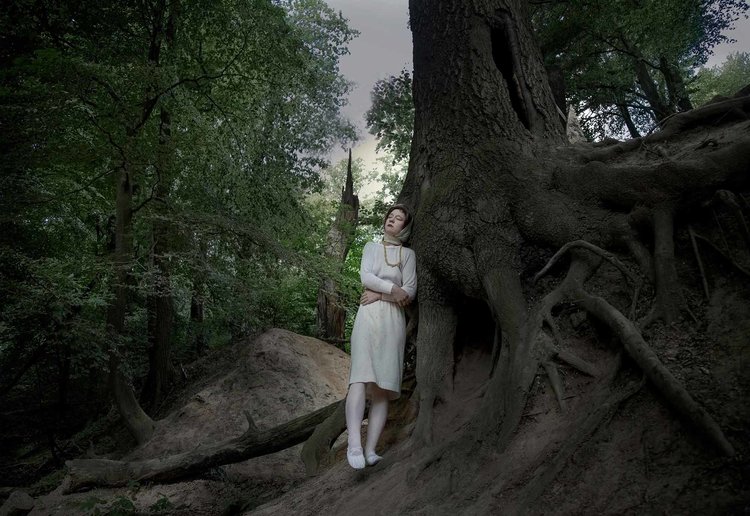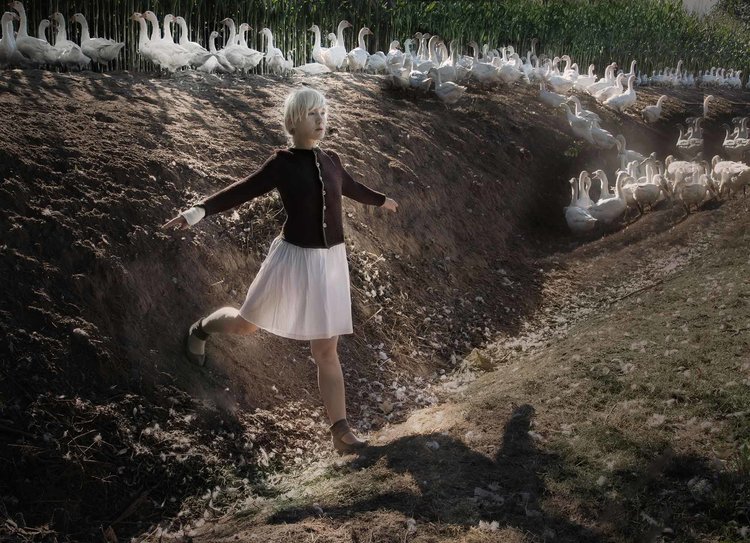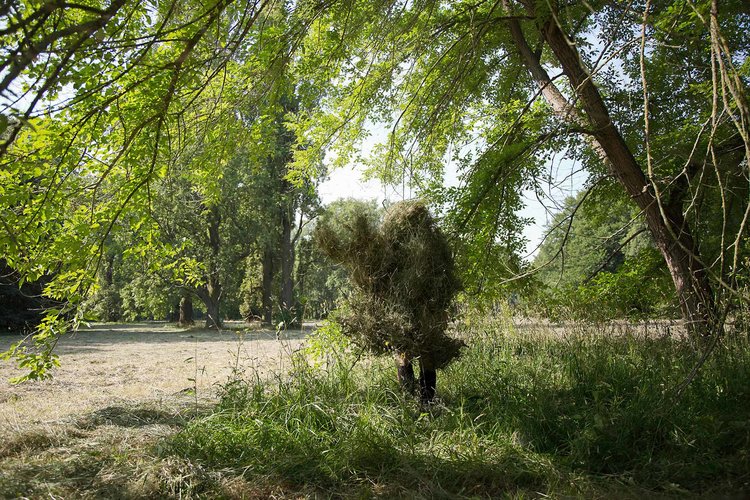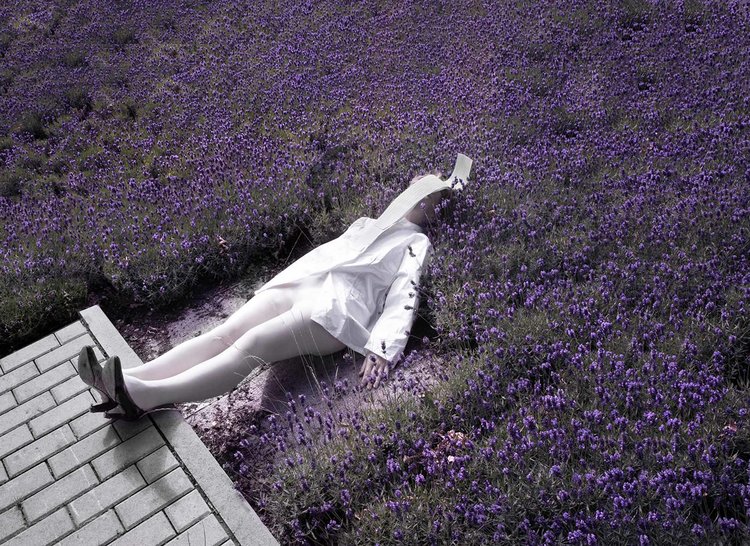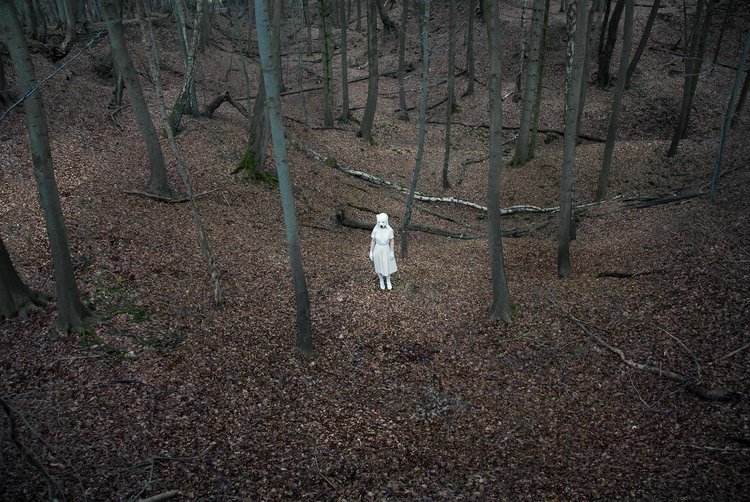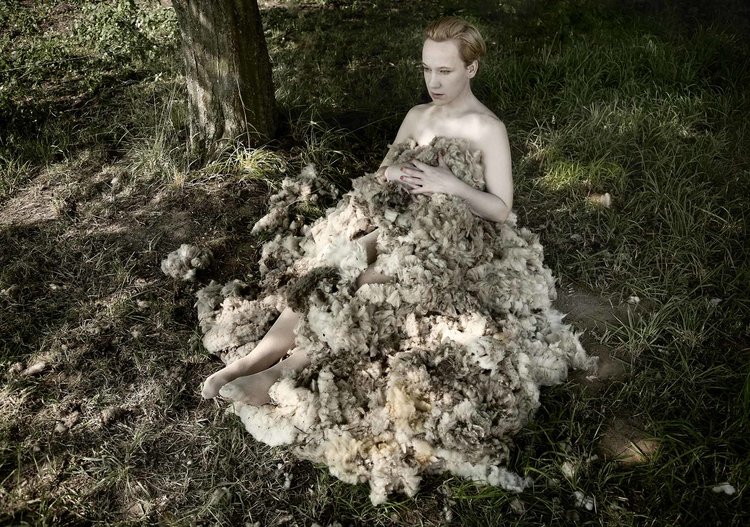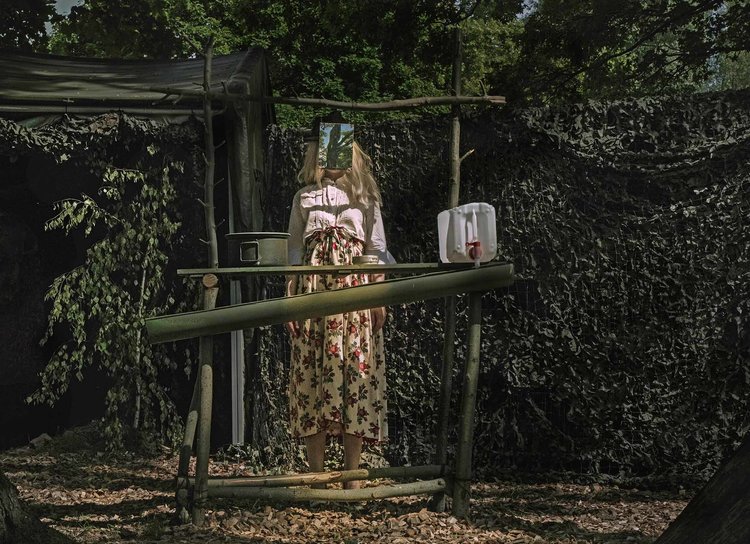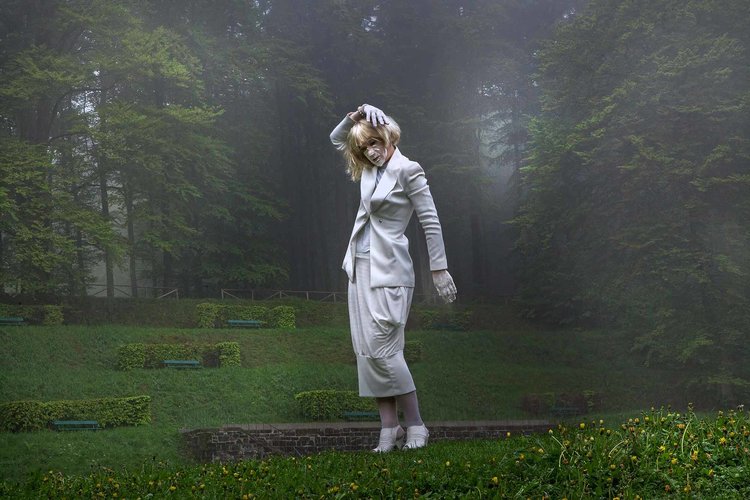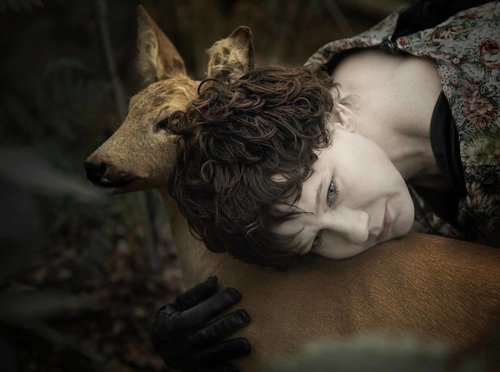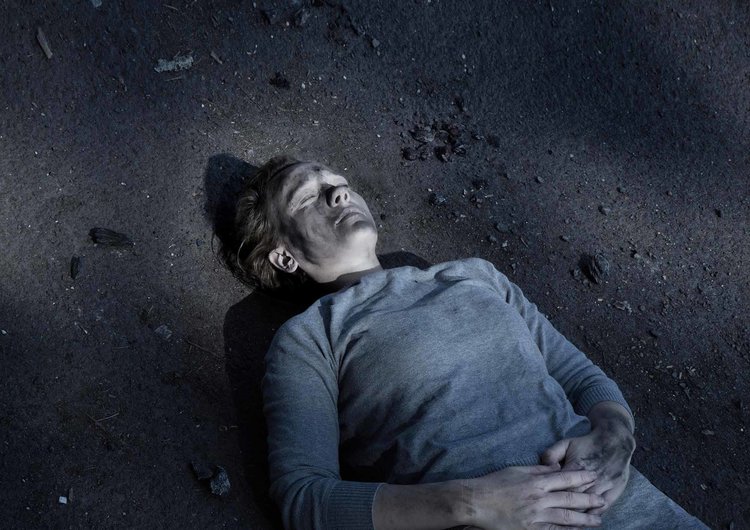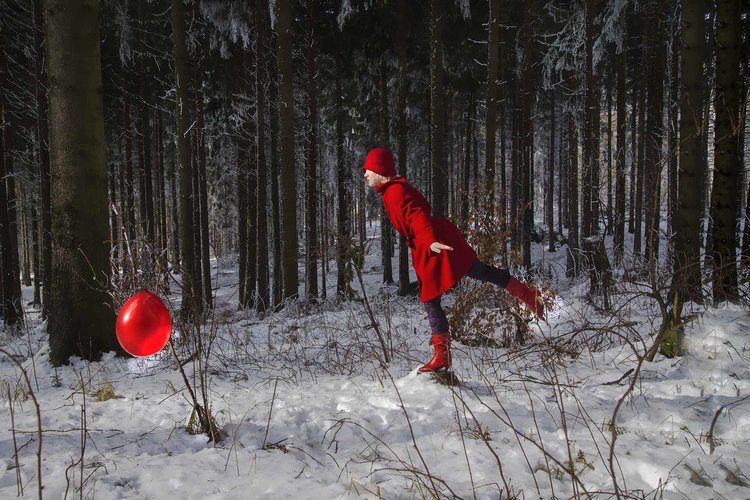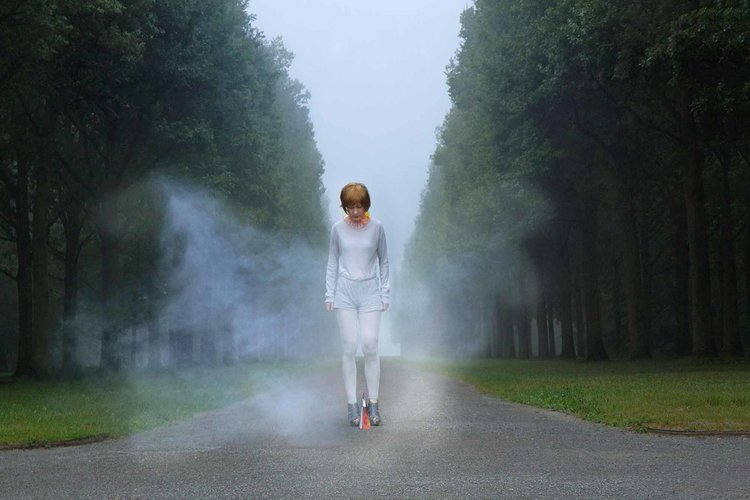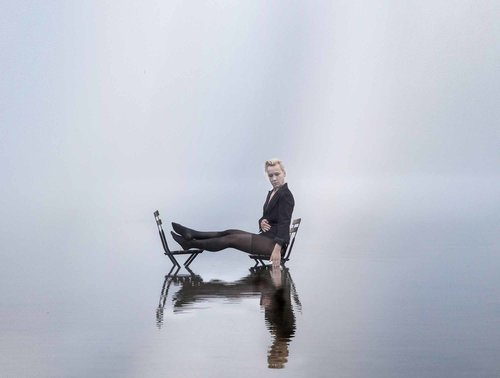PHILOSOPHERS
BY CATRINE VAL
Catrine Val was born in Cologne (Germany), and started out her career in Vienna (Austria) working in the field of advertising, as a commercial artist. She finished her BA at the Art Academy in Kassel (Germany). She also attended a post-graduate studies at the Kunsthochschule für Medien, in Cologne. She worked for 6 years as an assistant lecturer to Bjørn Melhus at the Art Academy in Kassel, in the field of virtual reality, where she further developed her artistic position.
"Philosophers,
Our times are afflicted by a flood of narcissism, and an obsessive cult of self-expression. Visually building upon “Philosophers”, I examine the loss of connection to nature in our modern, technically driven world, in which nature has become a strange terrain. The longing for nature as a fixed reference point and the wishful thinking of an intact romantic worldview in which man and nature are in harmony, is facing an accelerating clock in our fully mechanized age. Art’s task changes in a world suffused with generated images. It is imperative to reflect on what are often highly sensitively charged worlds of images, the ways they are represented. In our constant rapid time modern life has become far-removed from anything resembling authenticity or truth. The relationships between nature and technology, language and body, body and space, have changed rapidly. The order of the day is to understand the world from the vantage point of abstraction and not to abstract from the world. In our post internet society ,they have altered the way we regard communication and identity, character and our own selves and femininity . Man is the only living species that can transmit and expand his store of knowledge from generation to generation; but such transmission requires a process of thought on the part of the individual recipients. The entire way, we approach the world has changed. In historical sense Philosophy claimed to provide a rigorous method to search for the meaning of life, and it was a precious substitute for dogmatic religion. But in modern times, religion among the educated classes in Europe and North America has lost ground, and intellectuals are neglecting the basic human need to find answers. Philosophy has shrunk in reputation and stature. “Philosophers” as one oeuvre is itself an open system: it employs transformations, mirror images, doublings and replications to develop realist fictions that amaze and surprise the beholder and raise questions concerning functional contexts as well as ideas of value.
In this modern western society women are rarely find in inhabiting a highly austere, analytical space, such as the one which philosophy involves. Slowly but still not globally, the opportunities are changing for better. Women have at last gained access to higher education, what they can achieve in the fields where men have distinguished themselves, above all in philosophy is still vulnerable, reacting at the margin areas of contemporary philosophy and speculative thoughts.
The genre of philosophy flourishing literately arises within the framework of a new need and frankness on the quest for the meaning of life. This is the highly influential age of the Internet in which we are constantly flooded by information in fragments. Each person at the computer is embarked on a quest for and fabrication of his or her identity. The web mimics human neurology, and it is fundamentally altering young people's brains. The web, for good or ill, is instantaneous. Philosophy belongs to a vanished age of much slower and rhetorically formal inquiry.
By referring to the external visual similarities of historical and current philosophers and the characteristics of their work, a reference to the historical philosopher, which incorporates his life and work, is made. As a contemporary interpretation of traditional philosophic thinking, “Philosophers” takes advantage of the iconographic approach of current media discourse. “Philosophers” as one oeuvre is itself an open system: it employs transformations, mirror images, doublings and replications to develop realist fictions that amaze and surprise the beholder and raise questions concerning functional contexts as well as ideas of value. It exposes the effects of individualism and technicality on modern man's position within his natural environment. “Philosophers” brings together different approaches in ideas and longings, which in their own way all aim to go beyond modern and postmodern thinking. The concept of "philosophers" quest for a new terminology and a new grammar of thinking about contemporary art and focus on new meaning of vision and gender."

